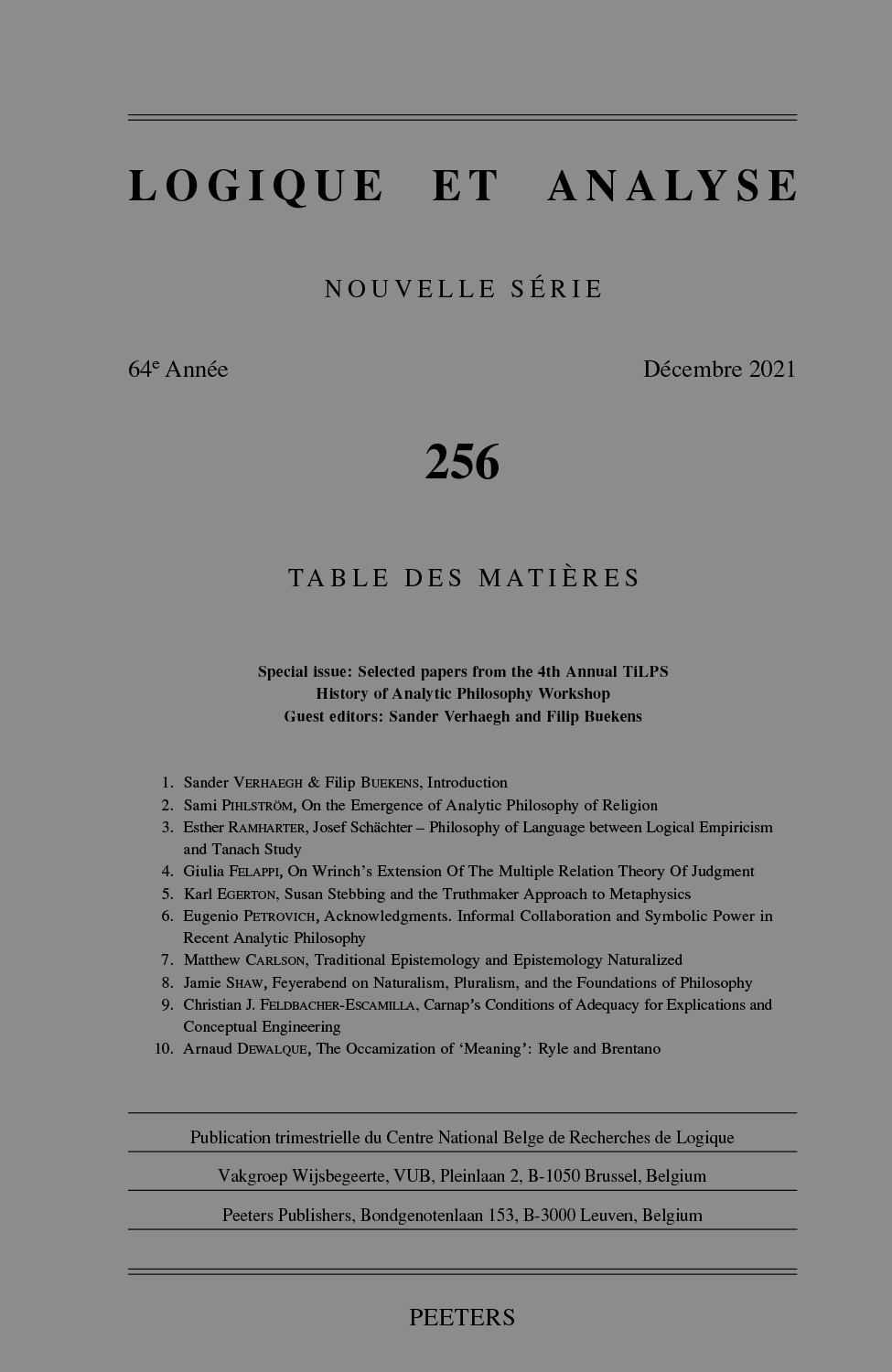 previous article in this issue previous article in this issue |

Preview first page |
Document Details : Title: A Note on Associative Choice Functions, Orderings and Typicality Author(s): TZOUVARAS, Athanassios Journal: Logique et Analyse Volume: 262 Date: 2023 Pages: 147-158 DOI: 10.2143/LEA.262.0.3293617 Abstract : We generalize a previous result of the author on how the algebraic property of associativity for choice functions, viewed as operations on subsets of a given set, connects these functions intimately to the existence of total orderings. The result is: Let f : [A]2 → A be a choice function for all pairs of A. Then there exists a linear ordering < of A such that f(a, b) = min<(a, b) if and only if f is associative, i.e., f(f(a, b), c) = f(a, f(b, c)) for all a, b, c ∈ A. This is generalized here as follows: Let f : P(A) {∅} → A be a full choice function. Then there is a well-ordering < of A such that f(X) = min<(X) if and only if f is associative, i.e., f(X ∪ {f(Y)}) = f(Y ∪ {f(X)}) for all nonempty X, Y ⊂ A. It is shown further that the set of associative choice functions is a minority in the class of all choice functions, which means that the property of non-associativity is a typical one in an appropriate structure, and hence every associative choice function is a non-typical element of this structure. In addition it is shown that the majority of choice functions are typical. |
|


